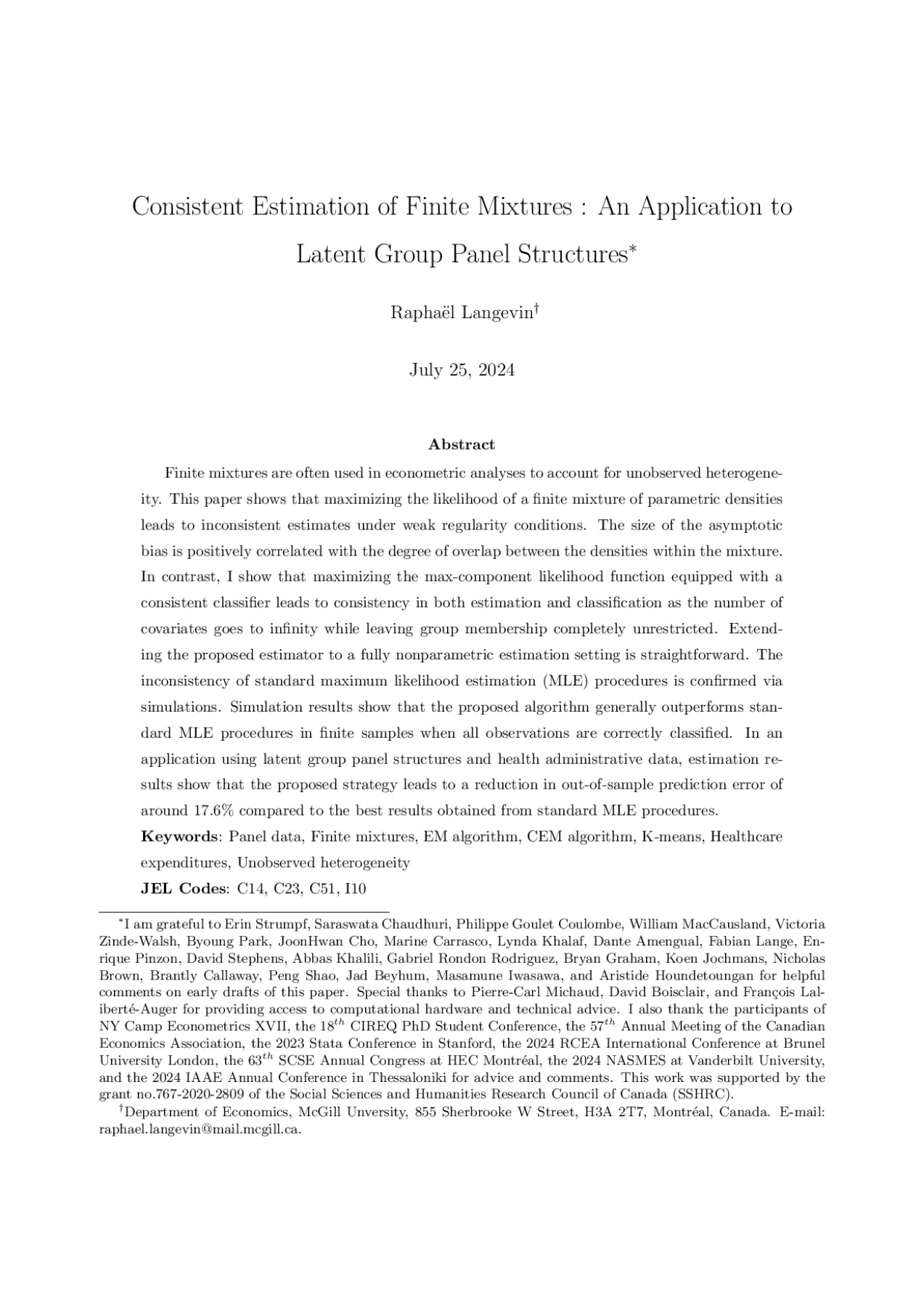2024 North American Summer Meeting: June, 2024
Consistent Estimation of Finite Mixtures: An Application to Latent Group Panel Structures
Raphaël Langevin
Finite mixtures are often used in econometric analyses to account for unobserved heterogeneity. This paper shows that maximizing the likelihood of a finite mixture of parametric densities leads to inconsistent estimates under weak regularity conditions. The size of the asymptotic bias is positively correlated with the degree of overlap between the densities within the mixture. In contrast, I show that maximizing the max-component likelihood function equipped with a consistent classifier leads to consistency in both estimation and classification as the number of covariates goes to infinity while leaving group membership completely unrestricted. Extending the proposed estimator to a fully nonparametric estimation setting is straightforward. The inconsistency of standard maximum likelihood estimation (MLE) procedures is confirmed via simulations. Simulation results show that the proposed algorithm generally outperforms standard MLE procedures in finite samples when all observations are correctly classified. In an application using latent group panel structures and health administrative data, estimation results show that the proposed strategy leads to a reduction in out-of-sample prediction error of around 17.6% compared to the best results obtained from standard MLE procedures.
Preview



















































































